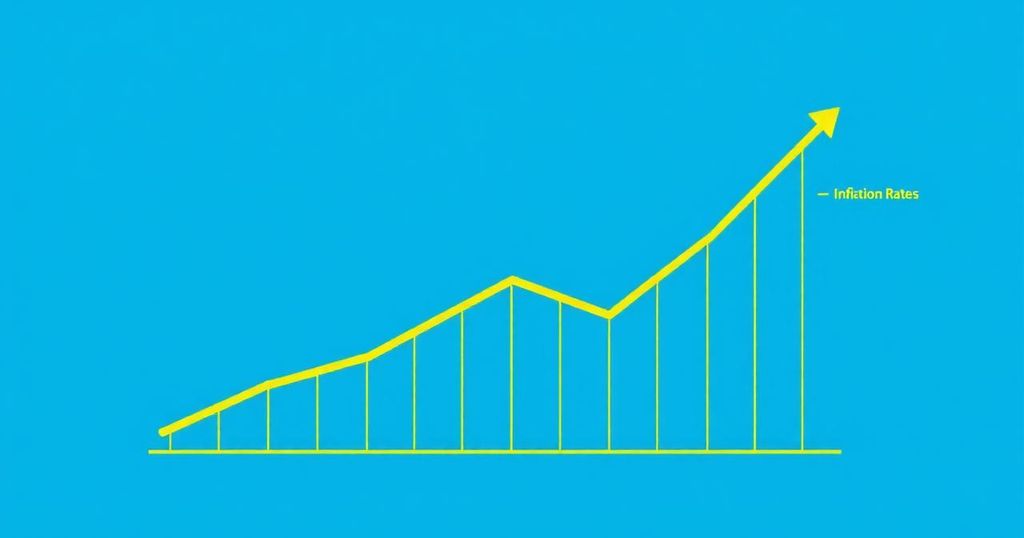Nigeria’s inflation rate decreased to 23.18 percent in February 2025, down from 24.48 percent in January, reflecting a year-on-year decline from 31.70 percent in February 2024. Food inflation also dropped to 23.51 percent. Declines were noted in urban and rural inflation, with varied state-level impacts. The NBS attributes these changes partly to CPI rebasing.
The National Bureau of Statistics (NBS) reported that Nigeria’s Consumer Price Index (CPI) declined to 23.18 percent in February 2025, down from 24.48 percent in January. This represents a significant decrease of 8.52 percent from 31.70 percent recorded in February 2024. On a month-on-month basis, inflation registered at 2.04 percent for the month of February.
Food inflation, year-on-year, dropped to 23.51 percent in February 2025, down 14.41 percent from the previous year’s 37.92 percent. This decline is attributed to the rebasing of the CPI from 2009 to 2024. Month-on-month food inflation was at 1.67 percent, while the average annual rate for the 12-month period ending February 2025 increased to 34.74 percent from 30.07 percent in February 2024.
The report highlighted a decline in the average prices of food items including yam tuber, potatoes, and cassava compared to January 2025. Core inflation, which excludes volatile items, also saw a year-on-year drop to 23.01 percent from 25.13 percent in February 2024. On a month-on-month basis, the core index stood at 2.52 percent, reflecting an annual average rate of 25.33 percent.
Several sectors contributed to the inflationary trends, including food and non-alcoholic beverages (9.28 percent), restaurants and accommodation (2.99 percent), and transport (2.47 percent). Additionally, housing and utilities accounted for 1.95 percent, while education, health, clothing, and other services contributed minor percentages.
Urban inflation decreased to 25.15 percent year-on-year from 33.66 percent, with a month-on-month index of 2.40 percent. Rural inflation fell to 19.89 percent, down from 29.99 percent in February 2024, with a month-on-month index of 1.16 percent. At the state level, Edo, Enugu, and Sokoto saw the highest headline inflations, while Kaduna, Akwa Ibom, and Plateau recorded the lowest.
Among states, food inflation was highest in Sokoto at 38.34 percent, followed by Edo and Nasarawa, whereas Adamawa, Ondo, and Oyo reported the slowest increases. Monthly food inflation peaked in Sokoto again, while declines were noted in Ondo, Kaduna, and Oyo.
The latest CPI report provided by the NBS indicates a significant reduction in Nigeria’s inflation rates for February 2025. With a notable decline in food inflation due to the rebasing of the CPI and improved price stability in several essential food items, there are indications of a positive shift in the economic landscape. However, the variability in inflation rates across different states suggests a continued need for targeted economic policies to address these disparities and sustain the downward trend in inflation overall.
Original Source: www.arise.tv






